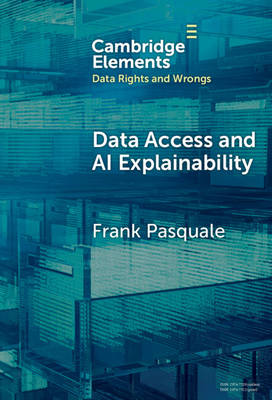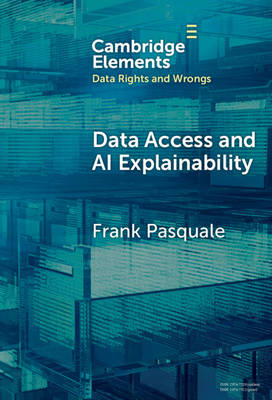
- Afhalen na 1 uur in een winkel met voorraad
- Gratis thuislevering in België vanaf € 30
- Ruim aanbod met 7 miljoen producten
- Afhalen na 1 uur in een winkel met voorraad
- Gratis thuislevering in België vanaf € 30
- Ruim aanbod met 7 miljoen producten
Zoeken
Omschrijving
As managers digitize judgment using AI, their evaluations of persons risk imposing benefits and burdens in opaque and unaccountable ways. A wide range of harms may occur when access to one's personal data (and meaningful information about its use) is denied. Key data access rights and AI explainability guarantees in US. and EU law are designed to ameliorate the harms caused by irresponsible digitization, but their definition and range of application is contested. A robust policy evaluation framework will be needed to inform the proper level and scope of information access, as regulators clarify the contours of such rights and guarantees. By revealing the stakes of data access, this Element offers a useful evaluative framework for those interpreting and applying laws of data protection and AI explainability. This title is also available as Open Access on Cambridge Core.
Specificaties
Betrokkenen
- Auteur(s):
- Uitgeverij:
Inhoud
- Aantal bladzijden:
- 84
- Taal:
- Engels
- Reeks:
Eigenschappen
- Productcode (EAN):
- 9781009627368
- Verschijningsdatum:
- 2/10/2025
- Uitvoering:
- Hardcover
- Formaat:
- Genaaid
- Afmetingen:
- 152 mm x 229 mm
- Gewicht:
- 285 g

Alleen bij Standaard Boekhandel
+ 225 punten op je klantenkaart van Standaard Boekhandel
Beoordelingen
We publiceren alleen reviews die voldoen aan de voorwaarden voor reviews. Bekijk onze voorwaarden voor reviews.








